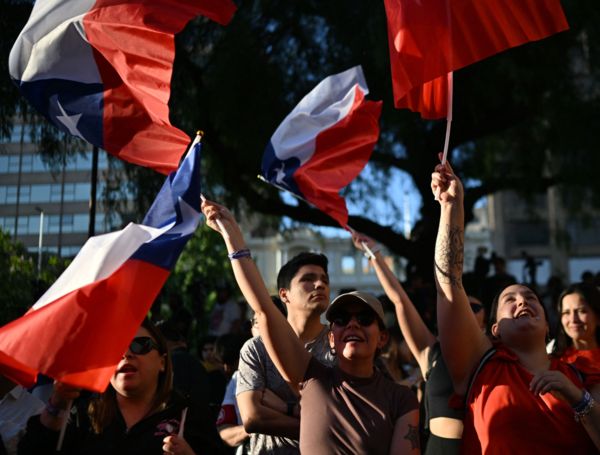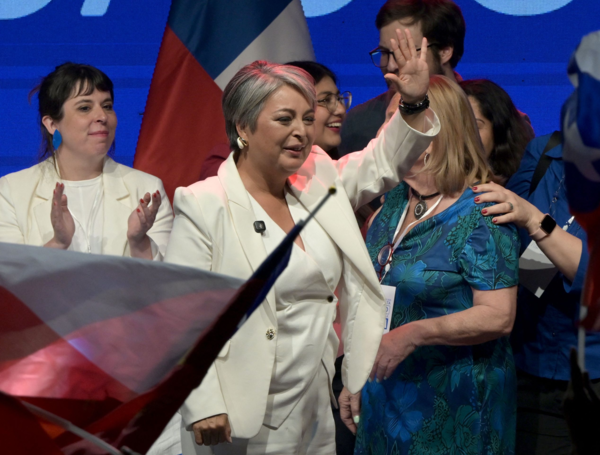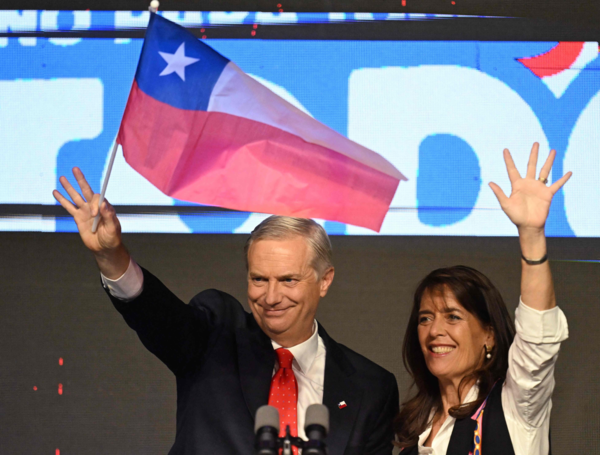Jeannette Jara and José Antonio Kast will compete in the second round of the presidential election in Chile, after the first round was held this Sunday in a context of high polarization and with the incorporation of five million new voters under mandatory voting.
With 94.5 percent of the polling stations counted at the close of this edition, Jara, the Communist Party candidate and standard-bearer of the ruling party, obtained 26.7 percent of the votes, a modest result considering that projections attributed at least 30 percent to her.
“Almost half of Chileans voted neither for me nor for Kast, and we will listen carefully to them. Anyone who wants to represent Chile must listen to everyone,” he said, adding that he would take proposals from his defeated opponents.

For his part, Kast, of the Republican Party and a leading figure of the more conservative right, reached 24.3 percent, a figure that was within expectations.
“Chile is more important than political parties, more important than the various individuals who put forward these proposals. We need to avoid the continuation of a very bad government, perhaps the worst government we can remember,” he stated.
In third place is Franco Parisi, a critic of the political establishment who tends to attract disillusioned voters from both the right and the left. Parisi, who also held this same position in the 2021 elections, obtained 18 percent of the vote this time, surpassing libertarian Johannes Kaiser and center-right candidate Evelyn Matthei, who were tied for third place in the polls and are the biggest losers of the day.
The scenario for the second round will continue to be marked by political fragmentation and the need to attract moderate voters. Analysts point out that, although the right wing, which has been fragmented, tends to unify in the final round, it is not automatic that the support of eliminated candidates will transfer directly to Kast.
“The second round is a different election because other things are at stake and the candidates must present proposals aimed at a broader public, where they have to seek out the moderate sectors, and that will cost the right-wing candidate much more if they make it to the second round,” said Marco Moreno, director of the Center for Democracy at the Central University of Chile.

In that regard, Matthei and Kaiser stated that they would support Kast. “We will keep our word and support his candidacy in the second round because the alternative is Ms. Jara,” said the libertarian candidate.
Similarly, Jara will need to broaden his base beyond the traditional left-wing electorate to face a runoff election that, according to most previous polls, would be unfavorable to him. In the latest Panel Ciudadano poll, published on October 31, Jara appeared 14 points behind Kast in a runoff scenario.
The impact of mandatory voting was evident. With a voter registry exceeding 15 million, the day showed a significant increase in participation compared to previous presidential elections: 12.7 million votes at the time of this writing – in 2021, 7 million voted in the first round.
President Gabriel Boric, for his part, congratulated the Chilean Electoral Service and the citizens who participated in the electoral process. “Next Sunday, December 14, Chile will elect the person who will govern the destiny of our nation; this fundamental decision rests on the conscience and the free and informed vote of the citizens,” the president said.
These words are especially relevant, as the second round will determine whether Chile opts for a shift to the right with Kast—as has already happened in Bolivia and Argentina—or for continuity with the current administration under Jara, in an economic context marked by low growth, moderate inflation, and challenges in the labor market, and in a country where security and migration remain the main concerns of its citizens.

The election also included votes to renew all 155 seats in the Chamber of Deputies and 23 of the 50 seats in the Senate. Preliminary results indicate that Cambio por Chile has won 41 seats in the Chamber, surpassing the traditional right-wing coalition Chile Grande y Unido, which has 37. The left-wing coalition, Unidad por Chile, has secured 61 seats, plus three each for the Green, Regionalist, and Humanist parties. The People's Party made significant progress, with 11 preliminary seats.

